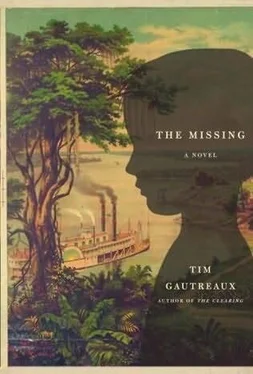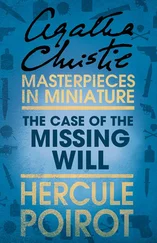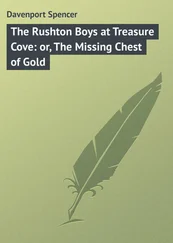“Well, I had my reasons for coming alone with the girl.”
“Yeah, je sais. So she won’t get lost in the shuffle, hanh?”
“Something like that. I wanted to show her around.”
His uncle cocked an eyebrow at Lily. “Ain’t much to see, but look all you want.”
Aunt Marie began herding them inside. “Come on, come on. Wash you hands and both of you can help me set the table.”
Supper was rabbit stew on rice, drop biscuits, mustard greens, smothered okra, and fried apple pies. Arsène and Tee Claude were at table along with a hand named Beaupré, and they made a game of teaching Lily the funny French words for “bullfrog,” “wet hen,” and “coot.” Afterward, Claude and Sam took glasses of blackberry wine out to the front porch to sit for a minute in the cool weather, the wind having died off.
“So, Linda found her a house she likes?”
“She’s set on it for sure.” He looked around the farm, everything showing hard work and wear. The thought of asking for money pained him.
His uncle told him about his own house, where the lumber had come from, how long it took him to build it with a handsaw and hammer. He listed all the storms it had survived. For Claude, the matter at hand was always surrounded by narrative, placed in a frame of family history. After half an hour, Claude was quiet for a full minute, then asked, “So, combien?”
He told him how much he could get by with, and his uncle made a face. “Whatever I give you, I’m takin’ away from the boys and Marie. And the farm. That fence wire in the truck? We borrowed money ourselves for more land next to us.”
“I understand. But it would be a loan. We’d pay you notes.”
Claude waved the back of his hand at him. “Hey, don’t get all excited. I knew this day was comin’, yeah. I knew you’d need money for enfants or the hospital or a business, someday. When I heard you voice on that telephone, I knew. It’s time, I told myself.”
“Time for what, Nonc?”
Claude leaned over and clamped a hand down hard on Sam’s arm and shook it. “To give you your farm.” With his other hand he pulled a folded document from his overalls bib and handed it over. Sam could see in the light falling through the door that it was a deed.
“What’s this?”
“Can’t you read?”
“This is my daddy’s farm?” He stood up, amazed. “I didn’t think he ever owned anything.”
“ Mais yeah. I had it put in you name a long time ago. The tax ain’t nothin’ at all, and I been payin’ it along the way.”
He held the document out to his uncle. “Why didn’t you tell me?” He remembered sitting on this very porch as a teenager, unable to imagine how anyone could progress to the point of owning anything except clothes and a name.
“Sammy, I never thought you was no farmer. Didn’t think you’d want to spend you life on that place.”
He looked at the paper, still holding it in both hands. “How big is it?”
“Fifty acres.”
He looked toward the north into the deep dusk, where bats were harvesting insects in the glow above the trees. “How much do you think I can get for it?”
“It needs clearin’ again. Quick sale, maybe eighteen hundred.”
He sat down. “Linda will dance on the ceiling when I tell her.” He looked out into the dusk again, in the direction of the property. “Last time I was here you mentioned a house. Is it still there?”
“Like I said, a cypress house. It’ll never go nowhere.”
“Can you tell me how to get to it?”
Claude made a face. “It’s all growed up.”
“I want to see it.”
“Well…”
“And I want the girl to see it with me.”
His uncle shook his head. “No you don’t.”
“I have my reasons.”
“Ain’t no good reason to show a kid that place.” He looked at Sam suspiciously. “What you gonna tell her?”
“What she needs to know about me.”
His uncle stared at him a long time, then gave an exaggerated shrug. “I never told you nothing till you was old enough. A child deserves a childhood.”
Sam folded up the deed and slid it into his shirt pocket. “She’ll understand, this one.”
***
THE NEXT MORNING was very cool when he saddled an old grease-black gelding and set out after breakfast riding double, Lily behind. They rode cross-country through thousands of acres of cut-over cane field, an ocean of blond stubble. Following Claude’s directions, he found the big cross-ditch and traced it to a plank bridge, and over that they were in the woods. He was glad it was winter, that some of the brush had died back so they could see.
The girl hung on to his belt and sat back in the saddle, staying balanced and keeping her feet away from the horse as she’d been told. She was quiet during the ride, but once they went among the bare trees, she said, “This doesn’t look like a farm.”
“Thirty-some years ago it was.”
She flinched at a branch that slid past his shoulder. “It just looks like nobody’s ever lived here.”
“Believe me, they did.” Fifteen minutes into the oaks and gum trees, he stopped and sat the horse. “I never came all the way out here, even to hunt. I don’t know where anything is.”
She looked around him. “Maybe we should get down and walk.”
They led the horse through a broad, shallow ditch, and on the other side the animal’s hoof clinked and Lily kicked the leaves off a chipped tin washbasin. She looked up at him and he nodded. He knew she was smarter but was surprised that she also had better instincts than he did. They moved on, watching the ground, and soon found an ox yoke, then looked up and saw something two hundred feet away that was the same color as the dun and frostbit woods but arranged in different form, and their brains told them it was the house though their eyes couldn’t yet see it. They walked up and stood in front, and even the horse raised its head and looked, its breath steaming. Frost-scalded vines ran up the sides and wisteria the size of a child’s arm had grown through the open front door, then curved around and grew back out onto the porch as though not liking what it found inside, the dearth of light, the drought. The house was four rooms and from the front porch a steep set of steps rose into an attic. The roof was high-pitched and some of the cypress shingles had taken flight in storms, but as a whole, the structure sat square and sound on its eroded brick piers.
“This is where you lived?” Her voice was respectful, as if in church.
The tree trunks hid the sun, and he shivered. “Until I was six months old.”
“Six months.” She said this slowly, as if tasting the words.
He watched her eyes take in the bullet holes, dime-sized punctures that stippled the front wall, splintered the window frames, door frames. “Those are from bullets.”
She kept looking. “I know what they are. Your mother and father, they were killed here. When you were six months old.”
“And my sister and brother.”
She caught her breath. “Did they catch who did this?”
So even she thought first of revenge, of justice. “No. They lived out their lives.”
She turned to him. “That’s not fair.”
He shrugged. “I don’t know. What kind of life do you think they had?”
“What?”
“People who would do this, what kind of life do you think they had?”
“I don’t know.”
“Well, you’ve got a long time to think about it. I’m going in.”
“It’s scary.” Suddenly her voice was small.
“You can stay out here, then.” He tied the horse to a chinaball sapling and went up the pulpy steps to the porch. He looked inside, tested the floor, and slid a foot into the dim light, the sweet peppery smell of the cypress lumber making his head spin like a compass needle. The wood of the big room bore the brown-silver tint of the outside, but was less weathered. Nothing remained except a big potbellied stove, its pipe a streak of rust on the floor. Walking past without looking at it, he felt a shudder rise through his shoulders, and he quickly stepped into the kitchen, which held only low, warped cabinets and a broken spindle-back chair lying facedown. The window here was intact and outside of it was the tablet where his mother had washed dishes, as did every Frenchwoman in the region in the days before indoor plumbing. The rear bedroom was an empty box and some of the ceiling boards had come down, showing the joists. He passed through a door into the front bedroom, bare but for the dirt caused by newborn daubers breaking free of their mud. Maybe he was born in this room, saw his first dawn in the window, his first lamp flame, and he stood long and thought about what had happened here.
Читать дальше












